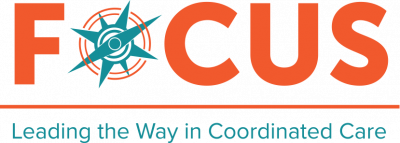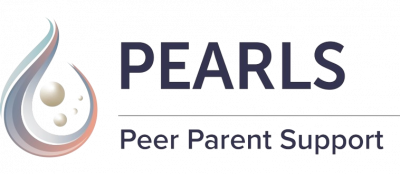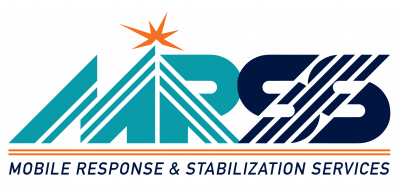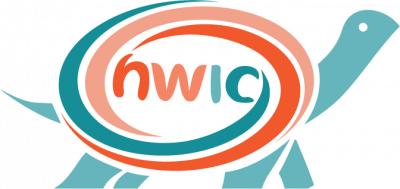Workforce Development
Investing in the development and support of the workforce is paramount to achieving success in today's ever changing and dynamic environment. Our comprehensive workforce approaches are designed to equip individuals and organizations with the skills, knowledge, and resources they need to thrive and to meaningfully support families.
We equip professionals with the knowledge and skills to support state and local needs, gaps in the service continuum, and the behavioral health needs of children and adolescents effectively. Workforce development is critical in delivering high-quality care and essential in fostering the development of environments where every child, young adult, and family has the support they deserve.
We disseminate and implement proven models aimed at improving the well-being of children, adolescents, and their caregivers. Our approach incorporates a cascading training/coaching methodology, empowering states to ensure sustainability and efficacy where we partner.
Our Workforce Development Expertise
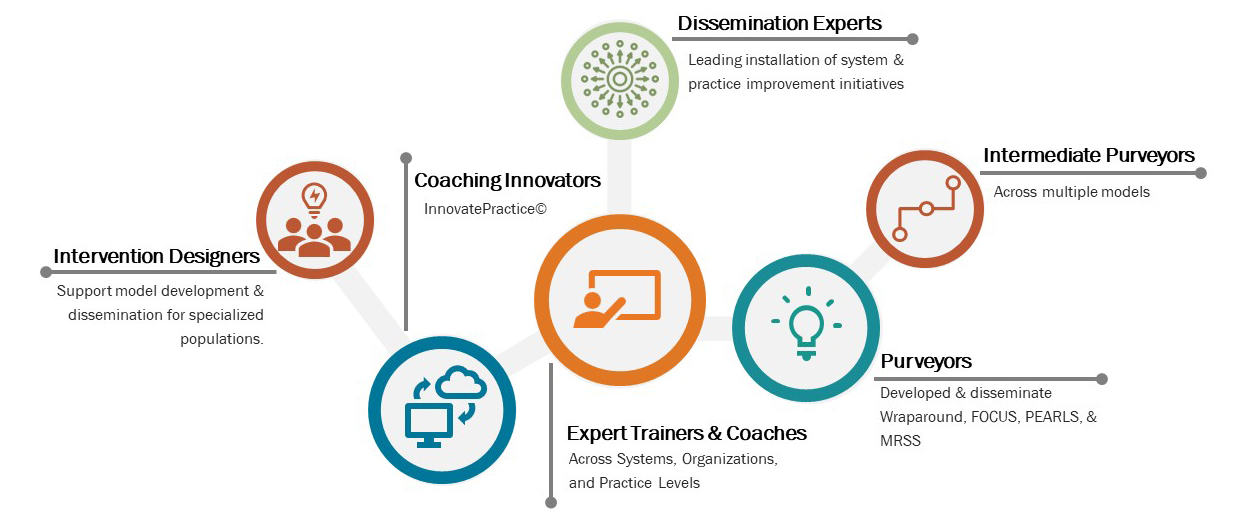
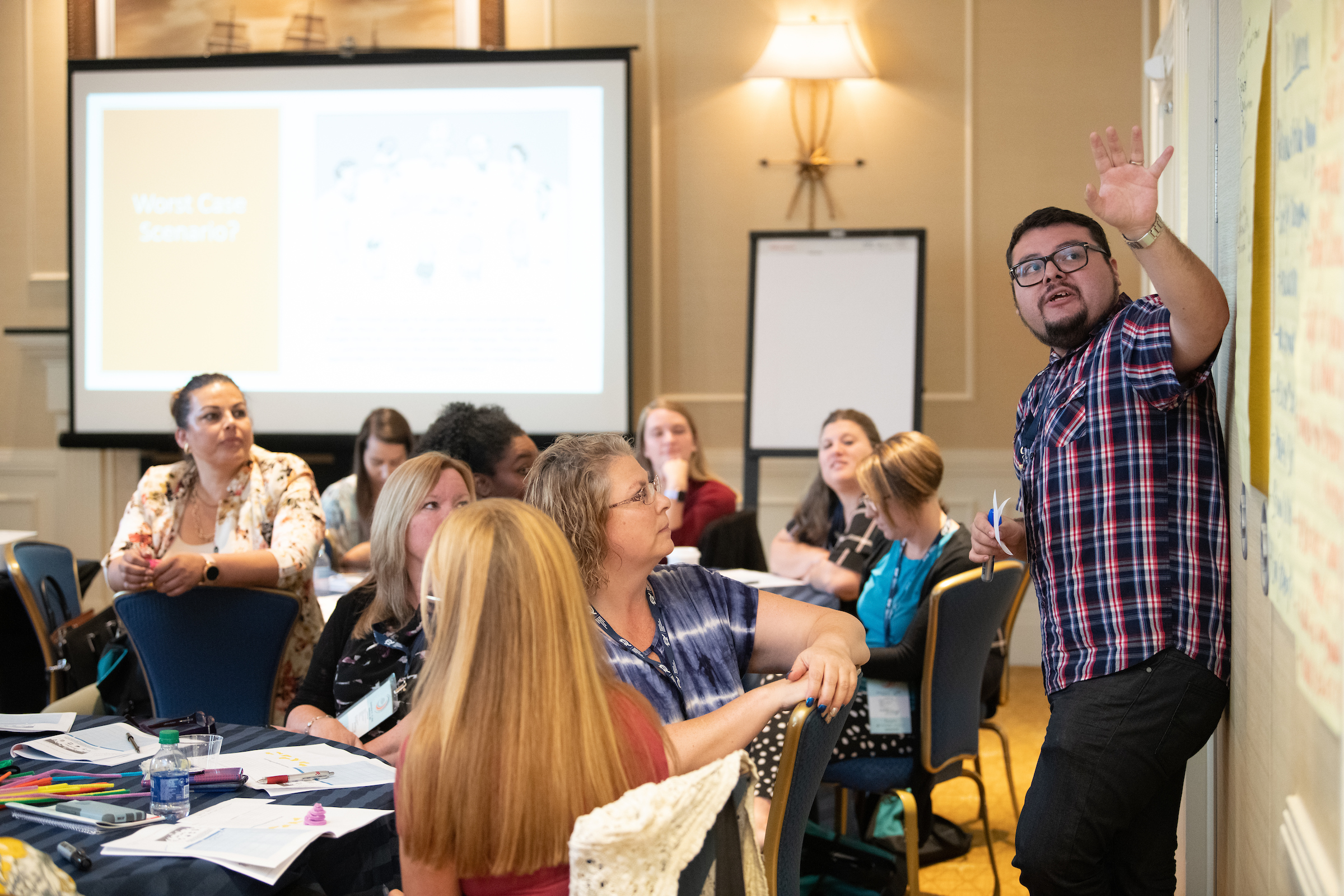
Our Approach
Our holistic approach to workforce development combines cutting-edge training methodologies with personalized support and expertise and an eye to emerging trends and technologies. Our programs are tailored to meet the unique needs of individuals, organizations, and states. We customize workforce development programs to support and address specific skill gaps and state objectives.
Dissemination of Proven Models
We focus on disseminating evidence-based models that have demonstrated effectiveness in addressing children's behavioral health issues.
Implementation Support
We provide comprehensive support for the implementation of our models. Our team works closely with state agencies, organizations, and individual sites to tailor implementation strategies to their unique needs and contexts.
Skilled Training
Individualized: We adapt our training approach to meet the needs of participants, including the various learning styles of those we partner with, to grow skill and understanding in a safe and meaningful way.
Strengths Based: We identify the skills of those we train and build upon those strengths to enhance the training and establish a strong foundation to support skill attainment.
Data Driven: We gather and use data to identify areas of strength and need.
Partnership: We model and engage in a collaborative approach that allows us to share experiences and hold each other accountable for positive outcomes for youth and their families.
Value Driven: Improving outcomes for youth, young adults, and their families is at the forefront of our training activities. The model/initiatives/practices are never more important than the families they are designed to support.
Based on Research and Best Practices: We ensure content and delivery methods are current and grounded in the latest research and use this information to inform and enhance training activities.
Community Centered: We learn from and relate respectfully to all people; this is evident in our curriculum, language, and skills.
Shared Expectations: We share clear, transparent, consistent standards that are foundational to practice.
Expert Content Coaches
Our coaching involves intensive, ongoing, on-site and virtual support to build the core skills needed to support quality, evidence-based practice and mastery of tools for implementation. Our expert content coaches create a structured, purposeful interaction with practitioners and organizations utilizing appropriate strategies, tools, and techniques to promote adaptable skill development to achieve desirable practice standards, making a positive impact on practitioners’ skill development and ultimately on families’ experience of the intervention/practice.
Cascading Training/Coaching Methodology
We train and coach a core group of individuals who then become trainers/coaches themselves. The cascading effect of this approach ensures that knowledge and skills are disseminated widely and sustainably throughout a state’s workforce. We continually review and update our approach based on the latest research and best practices, ensuring supports that are relevant, efficient, and aligned with the needs of the families, states, and organizations.
Train-the-Trainer Programs
We offer robust train-the-trainer programs designed to empower individuals with the expertise to effectively train others in the implementation of behavioral health models. These programs focus on training techniques and strategies for fostering engagement, meaningful skill development, and retention.
Key Features
Customized SolutionsEvery state and site have unique challenges and needs. Our approach emphasizes flexibility and customization to ensure that our solutions align with local contexts.
Ongoing SupportWe provide ongoing support and resources to ensure that implementation efforts are sustained over time and continue to yield positive outcomes.
Evaluation and MonitoringOur team conducts rigorous ongoing evaluation and monitoring to assess the impact of our programs; this allows us to make adjustments and ensure continuous improvement. By collecting data and monitoring implementation, we identify areas for improvement, make data-driven decisions, and enhance the quality and effectiveness of our programs.
Investing in workforce development is key to creating a brighter future for families with children and adolescents experiencing behavioral health challenges. By disseminating evidence-based models and empowering locals, we are building a more skilled and compassionate community.
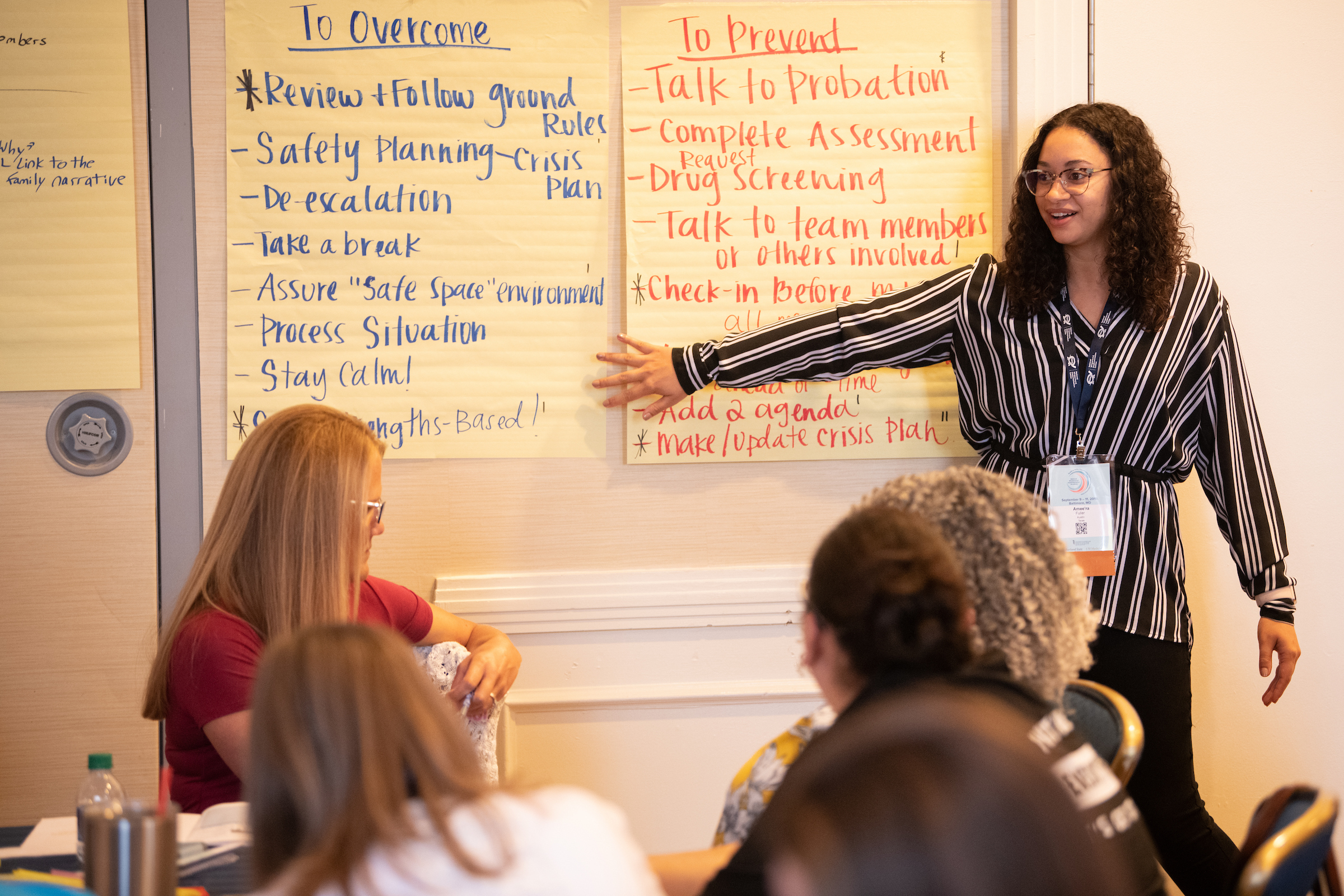
Workforce development encompasses a range of strategies and initiatives aimed at enhancing the skills, capabilities, and productivity of individuals partnering with children, young adults, and families. It involves:

Skills Training: Providing individuals with the technical and soft skills needed to excel in their current roles or transition into new ones.
Education: Offering educational opportunities, including formal schooling, certifications, and professional development programs, to foster continuous learning and career advancement.
Career Guidance: Offering guidance and support to help individuals navigate their career paths, identify opportunities for growth, and make informed decisions about their professional development.
Employer Engagement: Collaborating with employers to understand their workforce needs, align training programs with needed system reform efforts, and facilitate hiring and retention.
Community Partnerships: Partnering with community organizations, educational institutions, and government agencies to support workforce development efforts.
Investing in workforce development offers numerous benefits for individuals, organizations, and states including:
Increased Productivity: Well-trained and skilled employees are more productive and efficient, leading to improved outcomes.
Enhanced Competitiveness: A highly skilled workforce gives organizations a competitive edge in the marketplace by enabling them to innovate, adapt to change, and deliver high-quality supports and services.
Employee Satisfaction and Retention: Providing opportunities for growth and advancement fosters employee loyalty, satisfaction, and retention, reducing turnover costs and promoting a positive work culture.
Positive Outcomes: By employing proven methodologies and interventions, we ensure that programs are effective, efficient, and tailored to meet the unique needs of family, children, and young adults as well as the outer contexts in which they seek help.
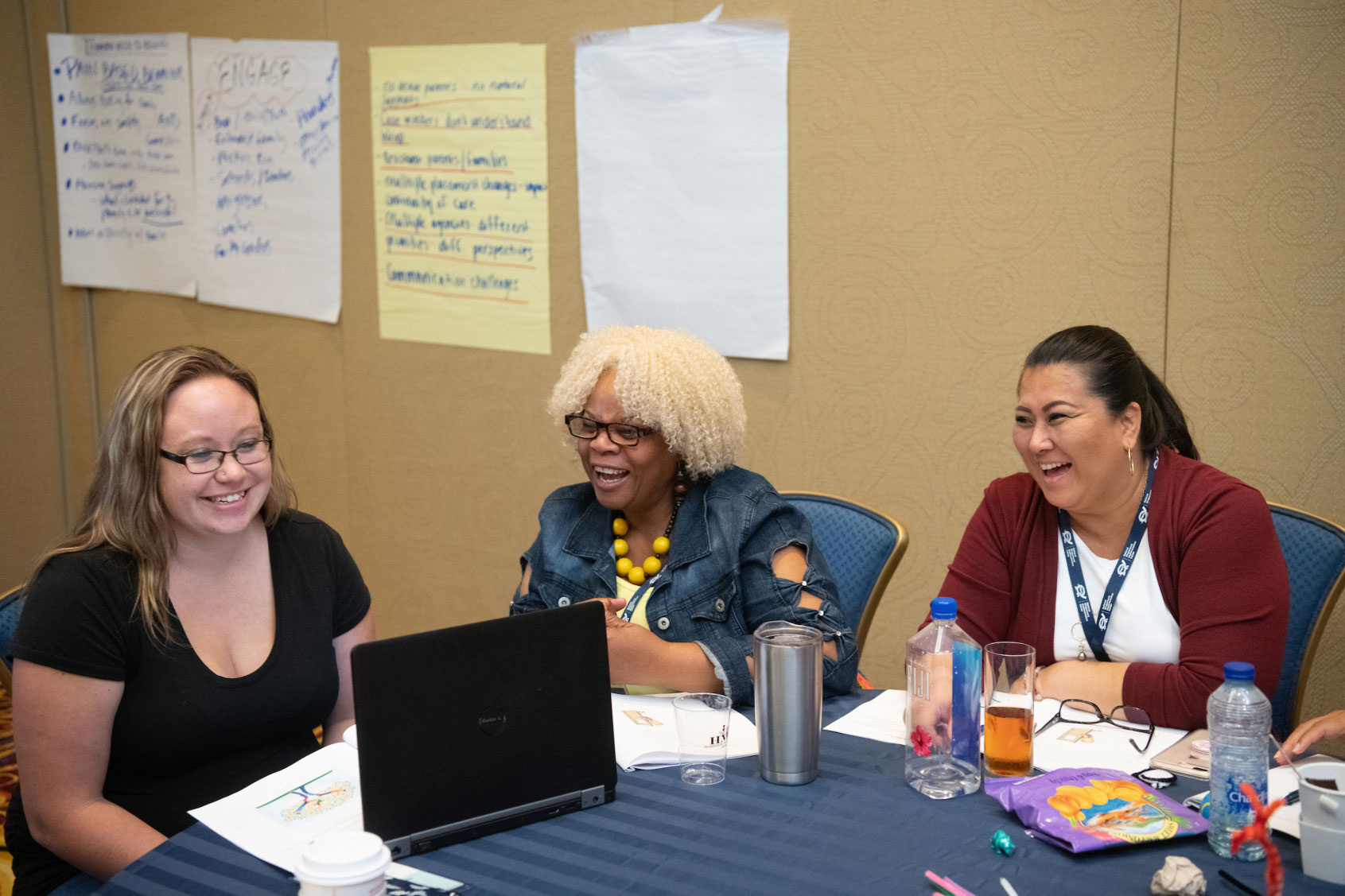
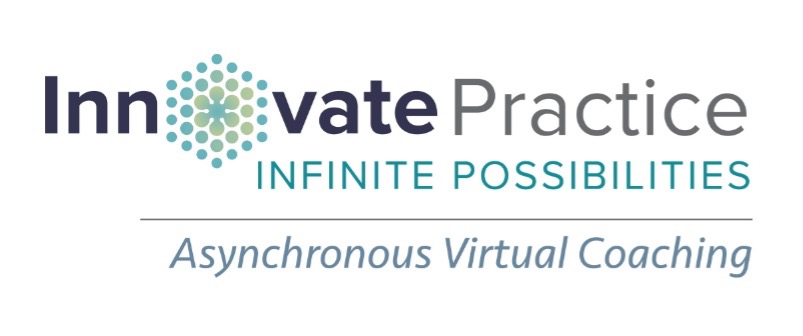
Coaching Platform
InnovatePractice© is Innovations Institute’s state-of-the-art asynchronous virtual coaching environment designed to address real-world fidelity challenges. InnovatePractice© enhances decision support and optimizes workforce development through cloud-based software tools that drive best practice approaches to staff development, evidence-based model dissemination, and quality oversight. Fidelity to standards of practice is key to improved health care outcomes and better quality of care. Through InnovatePractice© we monitor practitioner adherence to practice based standards with specific outcome metrics. This access to high quality coaching and training has historically been limited to those who have access to in-person supervisory experiences. Now, supervisors and staff are able to learn new practices from globally located model experts across all fields of practice.
